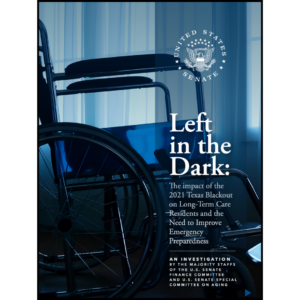Sprinkler systems save lives
As of August 2013, all nursing homes were required to have sprinkler systems installed. The requirement by the Centers for Medicare & Medicaid Services (CMS) was first proposed in 2008 after tragic fires in Hartford, Conn., and Nashville, Tenn. To enable facilities to install systems, the deadline was extended for five years.
Feb. 24, a fire broke out in a wing of the Perry Brooks Jackson Building, Alpha Phi Alpha Housing Estates, a 50-unit senior housing complex in Cleveland. Some residents and staff were moved to another part of the building, while others were evacuated in subzero temperatures. Two residents were hospitalized. Smoke inhalation has been blamed for the death of an 82-year-old female resident of the complex.
The cause of the fire is still under investigation. The tragedy? It was confirmed that the building did not have a sprinkler system. The presence of an early suppression sprinkler system would have helped firefighters. Because of the harsh winter most of the country has experienced, snow has become an issue. Two hydrants at the complex were buried in snow and had to be dug out, which raises other questions in this incident.
Meanwhile, on Feb. 19, a mattress fire triggered the sprinkler system at Ballard Rehabilitation, a skilled nursing facility in Des Plaines, Ill. Because the facility is in compliance with the federal mandate, the sprinkler system kept the fire confined to one room, while the fire department arrived to complete the extinguishment.
“This successful sprinkler activation proves the value of the federal rule and the ability of quick-response fire sprinklers to save lives and property,” said Tom Lia, executive director of the Northern Illinois Fire Sprinkler Advisory Board, in an article.
Hotels, motels, office buildings—almost any environment that serves the public—must have sprinkler systems and other fire suppression devices, whether mandated by federal, state or local governments.
The Perry Brooks Jackson Building is not a skilled nursing facility, but it does provide supportive services to the elderly. It doesn’t fall under the CMS mandate, but shouldn’t any setting that houses or cares for seniors be afforded the same protection?
Related articles: CMS offers temporary fire sprinkler citation fix
Legal blog: CMS' revision of sprinkler enforcement

Sandra Hoban was on I Advance Senior Care / Long-Term Living’s editorial staff for 17 years. She is one of the country’s longest-serving senior care journalists. Before joining Long-Term Living, she was a member of the promotions department at Advanstar Communications. In addition to her editorial experience, Sandi has served past roles in print and broadcast advertising as a traffic and talent coordinator.
Related Articles
Topics: Disaster Preparedness , Facility management , Medicare/Medicaid , Regulatory Compliance , Risk Management








